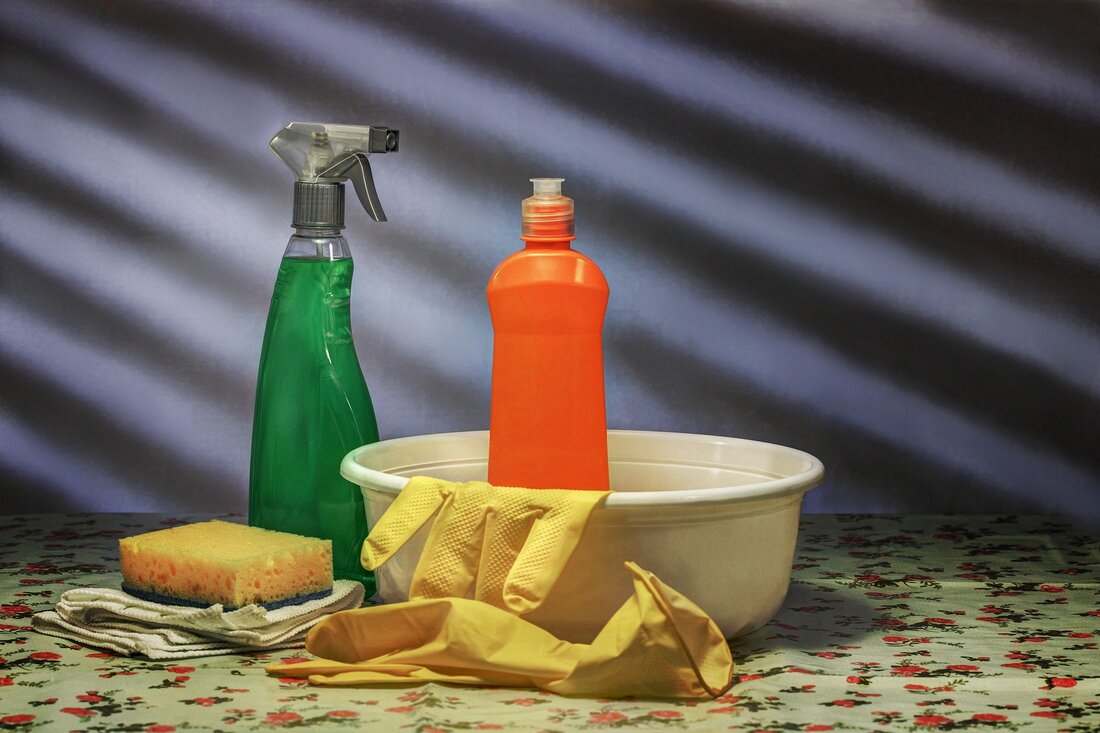Green Cleaning
1. Green Cleaning Services
Want someone else to take care of keeping your home clean but want to make sure they do it in as sustainable way as possible? Eco Cleaning Bristol, Clean Green Bristol and My Green Cleaner are all providers of cleaning services and they're all local to Bristol.
2. Green Cleaning Products
If on the other hand you have time to do the work yourself there are several online stores for environmentally friendly cleaning products out there. The Ethical Superstore, Green Bear UK and Cleaning Supplies UK are just some of the options available.
You can also make your own natural cleaning products at home out of common household items!
You can also make your own natural cleaning products at home out of common household items!
3. Refills
Of course one aspect of buying cleaning products which is easy to cut down the impact of is packaging. Bristol has 'zero waste' shops popping up all over the place where you can bring in your empty bottle of laundry detergent or washing up liquid and get it refilled - such as at Smaller Footprints in Clifton Village, Better Foods on Whiteladies Road, Wild Oats on Lower Redland Road, and Scoopaway on Gloucester Road.
If you can't get out to do your own refilling and need products delivered, Splosh is one alternative. They set you up with containers and then deliver concentrate in pouches that you can return with your next order.
If you can't get out to do your own refilling and need products delivered, Splosh is one alternative. They set you up with containers and then deliver concentrate in pouches that you can return with your next order.
4. Green Laundry
The greenest option is to only wash what really needs washing (do the sniff test!), and wash at 30 degrees except for exceptionally stained clothes. When clothes are particularly dirty, soak them first and you may still get away with a low temperature.
Use a guppy friend bag to avoid the millions of micro-fibres that come off each garment. These are invisible bits of plastic that are doing immense damage to our oceans.
Use an eco-friendly washing liquid - or soap nuts. Here's an interesting article on how effective they are and how best to use them.
Avoid dryers. If drying outside, or inside in a well ventilated room, isn't an option for you, here's a good article on electric clothes rails. It gives comparative running costs and information on efficiency. Whatever you use, avoid 4 - 8pm on winter nights, and ideally you should set to run in the early hours of the morning using a delay switch.
The greenest option is to only wash what really needs washing (do the sniff test!), and wash at 30 degrees except for exceptionally stained clothes. When clothes are particularly dirty, soak them first and you may still get away with a low temperature.
Use a guppy friend bag to avoid the millions of micro-fibres that come off each garment. These are invisible bits of plastic that are doing immense damage to our oceans.
Use an eco-friendly washing liquid - or soap nuts. Here's an interesting article on how effective they are and how best to use them.
Avoid dryers. If drying outside, or inside in a well ventilated room, isn't an option for you, here's a good article on electric clothes rails. It gives comparative running costs and information on efficiency. Whatever you use, avoid 4 - 8pm on winter nights, and ideally you should set to run in the early hours of the morning using a delay switch.
Did you find our resources helpful?
If so, please make a donation to support our work. We can't do it without you!
If so, please make a donation to support our work. We can't do it without you!


